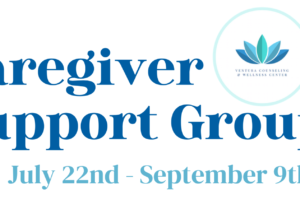Mental illness, just like physical illness, can sneak up on you. One day, everything seems fine. The next, the world feels like it’s shifted and you’re dealing with a mental health crisis.
And just like physical illness, mental illness is easiest to treat when it’s caught early. Getting help — either for yourself or for your loved one — can make all the difference in the mental health outcome. That’s why we’ve compiled this list of mental illness warning signs. By watching out for them, you help yourself and the people you care about keep a finger on the pulse of mental wellness.
And, remember, if you’re experiencing any of these mental illness warning signs, it’s not something you should feel ashamed about. Mental health disorders are just like physical disorders. You didn’t cause your mental illness and you’re not responsible for fixing it on your own. Mental health professionals are available to help you lead a healthy, balanced, happy life.
The top mental health disorder warning signs
Withdrawal
One of the characteristic warning signs of mental illness — and of depression, in particular — is withdrawal. Even if most people can’t self-diagnose their own mental illness, they’re often aware that their behavior or thinking is peculiar. The desire to be perceived as normal causes many to withdraw.
That withdrawal may also come with apathy. People with mental health disorders often quit doing things they once loved and experience a drop in performance at school or work. It’s also common to feel disconnected from people or things they cared about before.
Lifestyle changes
Changes in the way a person lives their life can be mental illness warning signs. Watch for changes in sleep patterns (either sleeping too much or barely sleeping), changes in appetite (overeating or not eating enough), and changes in sex drive.
Thinking changes
It’s no surprise that a mental health disorder impacts your ability to think rationally. Some of the early warning signs include trouble concentrating or remembering things. And many people with mental illness feel a pervasive sense of worry, guilt, or shame. They may also experience anger.
Many people also have trouble perceiving reality, often experiencing delusional thinking. This can be tricky to spot in yourself. Try to compare your sense of a situation with others’ perceptions.
Substance use
It’s extremely common to self-medicate with substances when living with a mental health disorder, especially one that hasn’t yet been diagnosed. People want to feel “normal” and “like themselves” again so they turn to substances that make their brain feel differently. This includes alcohol, marijuana, and other drugs.
If you notice any of these mental illness warning signs — either in yourself or in someone you care about — don’t hesitate to contact us. At the Ventura Counseling & Wellness Center, we have a wide range of comfortable, approachable mental health services. Whether you’re looking for talk therapy, yoga, alternative healing, or something else, we’re here to help.





